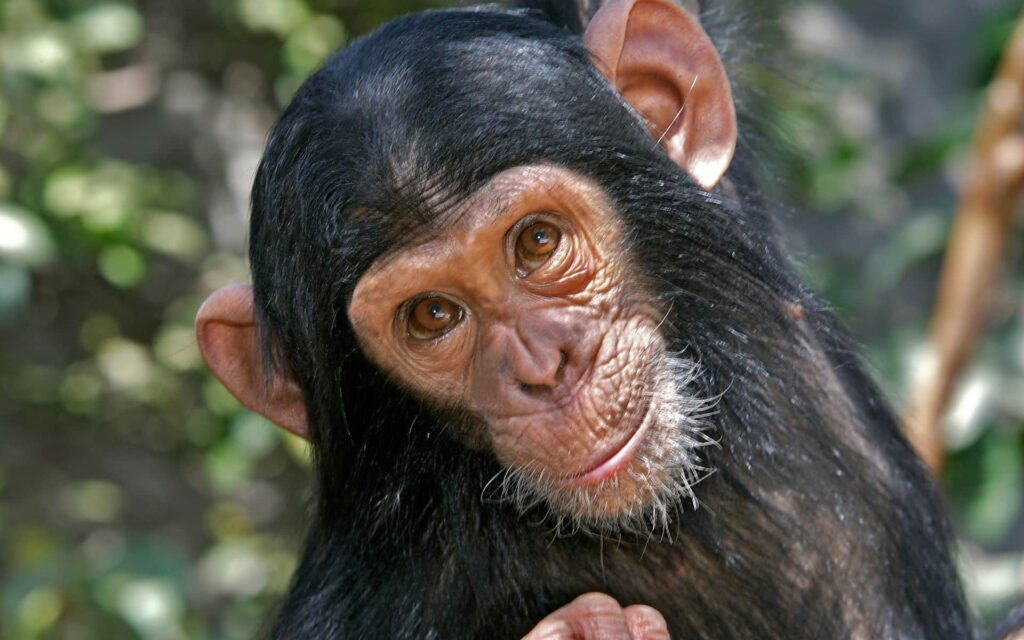In 1931, a toddler was subjected to an unsettling experiment involving a chimpanzee, a decision made by his parents, Luella and Winthrop Niles Kellogg. The goal was to explore the potential effects of raising the two together to see if the chimpanzee would develop more human-like behaviors.
However, as the study progressed, it quickly veered into troubling territory, with both the toddler and the chimp enduring harsh conditions. The incident has since become a focal point in discussions about ethics in scientific research, with sources like the Mirror describing the outcome as both shocking and deeply disturbing.
A Desperate Pursuit of Science
The Kelloggs were not just any parents—they were scientists, obsessed with the idea of environmental influence on behavior. They believed that if their son, Donald, grew up alongside Gua, a chimpanzee, the similarities between the two would blur, potentially revealing something profound about the nature of human development.
On June 26, 1931, Gua was introduced into the Kellogg household. At first, everything seemed innocent enough, but the experiments quickly escalated. Donald was subjected to a schedule of extreme and bizarre tests, designed to measure how he reacted to various stimuli. He was made to sleep in the same bed as Gua, and both were treated as “siblings,” with the same behavior expected of each.
The Kelloggs conducted tests to measure reaction time—once even firing gunshots to see how the two would respond. In another chilling test, both Donald and Gua had spoons struck on their skulls to compare the sounds made. It’s hard to imagine the confusion and fear that must have filled the household during these trials, especially for a 10-month-old toddler who was powerless in this twisted experiment.
The Toll of the Experiment on Donald
As the months passed, it became increasingly clear that the Kelloggs’ vision was not unfolding as they had hoped. Instead of Gua becoming more human-like, it was their son, Donald, who began to exhibit increasingly chimp-like behavior. He started to crawl, grunt, and even bite—behaviors that were alarming to his parents.
By the end of the experiment, Donald was showing signs of developmental regression. His parents watched helplessly as their son seemed to lose his humanity in favor of mimicking the chimpanzee’s instincts. This was when Luella, reportedly concerned for her son’s future, insisted that the experiment end. Despite Winthrop’s attempts to continue the study, Gua was sent back to the primate colony, and the study was officially terminated on March 28, 1932.
The Aftermath: Tragic Losses
The Kelloggs published a book on their findings, The Ape and the Child: A study of environmental influence upon early behaviour, which chronicled their research, although the sudden end to the experiment left many questions unanswered. Did the Kelloggs grow weary of the exhausting schedule? Was Gua’s increasing strength and unpredictability a legitimate concern? Or, as some speculated, was Luella’s fear of losing her son to this experiment the real reason for its abrupt conclusion?
As noted by the Psychological Review, the study’s termination on March 28, 1932 was shrouded in mystery. Speculation centered around the Kelloggs’ potential fatigue from the gruelling schedule, their desire to prepare the manuscript for Winthrop’s book, and the fact that Gua, who was becoming stronger and more difficult to manage, might pose a danger to Donald. The Review said:
We are told that the study was terminated on March 28, 1932, when Gua was returned to the Orange Park primate colony through a gradual rehabilitating process.
The Review further speculated:
First, the schedule that the Kelloggs maintained for the nine months was so gruelling that they may have quit for reasons of fatigue. Second, they may have wanted to use the time remaining to them on leave from Indiana to prepare the book manuscript for publication. Third, Gua was maturing, gaining in strength and, according to Kellogg, becoming less predictable and more difficult to manage. It is possible the Kelloggs feared Gua might inadvertently harm Donald.
While Winthrop continued his work at Florida State University, his personal life crumbled. His son, Donald, tragically died in 1973 at the age of 43, reportedly by suicide. The lasting effects of the experiment may have played a role in this untimely death. The chimp, Gua, also faced a grim fate. Sent to a primate colony after the experiment, she succumbed to pneumonia at the age of three, just a year after the study ended.

